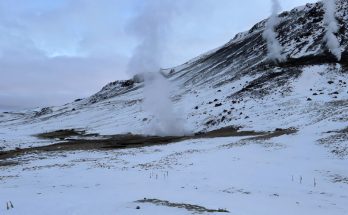Alberta Energy. Image credit: Twitter handle of Alberta Energy
Ottawa/CMEDIA: Affected by releases of wastewater from an oilsands mine, Chiefs of First Nations critciized Alberta’s regulatory system at a House of Commons committee hearing, labeling it a system that serves the industry and not the public.
“The Alberta system, when it comes to the Alberta regulator, is completely broken and should be dismantled,” Chief Allan Adam of the Athabasca Chipewyan First Nation was reported saying and added,
“While Alberta bears much of the blame, Canada must also shoulder responsibility for what has happened,” Adam said.
Hearings by the House of Commons environment and sustainability committee was held to examine why it took nine months for First Nations and governments to find out what was happening with both tailings pond seepage and overflow from a containment pond at Imperial Oil’s Kearl mine.
But it was insisted by the six leaders of the First Nations who addressed the committee that their concerns go much deeper than a single case.
“The Alberta Energy Regulator is a joke. A complete joke,” Adam was reported saying after breaking down in tears.
On Monday, leader after leader said the problem is much deeper than a single delayed notification.
A request for comment by the Alberta Energy Regulator was not immediately responded to.
While the head of the regulator, Laurie Pushor is scheduled to testify Thursday, Imperial Oil officials are expected next Monday.
Just before the hearings started, Canada’s Environment Minister Steven Guilbeault announced the first step towards an improved reporting process for environmental emergencies.
Guilbeault said that a new “notification and monitoring working group” — reportedly to be made up of representatives from federal and provincial governments, the Northwest Territories and Indigenous communities affected by the releases — would help design a better reporting system for the future.
The goal of the working group, said Jennifer Lash, a senior adviser to Guilbeault, is to develop a way to fix the notification process when something goes wrong, and address ongoing concerns about the possibility of seepage from all oilsands tailings ponds.
Lash had reportedly sent a letter Monday to invite any Indigenous Nations in the affected areas to participate and hoped that the working group would be running within two months.
An information-sharing group with federal, provincial, municipal and First Nations governments has also been formed.
“Our current lab results from ongoing independent water sampling of Lake Athabasca show drinking water is safe,” department spokesman Miguel Racin was reported saying in an email.
#AlbertaEnergyRegulator; #FirstNations; #AlbertasRegulatorySystem; #StevenGuilbeault; #notificationandmonitoringworkinggroup; #InformationSharingGroup





